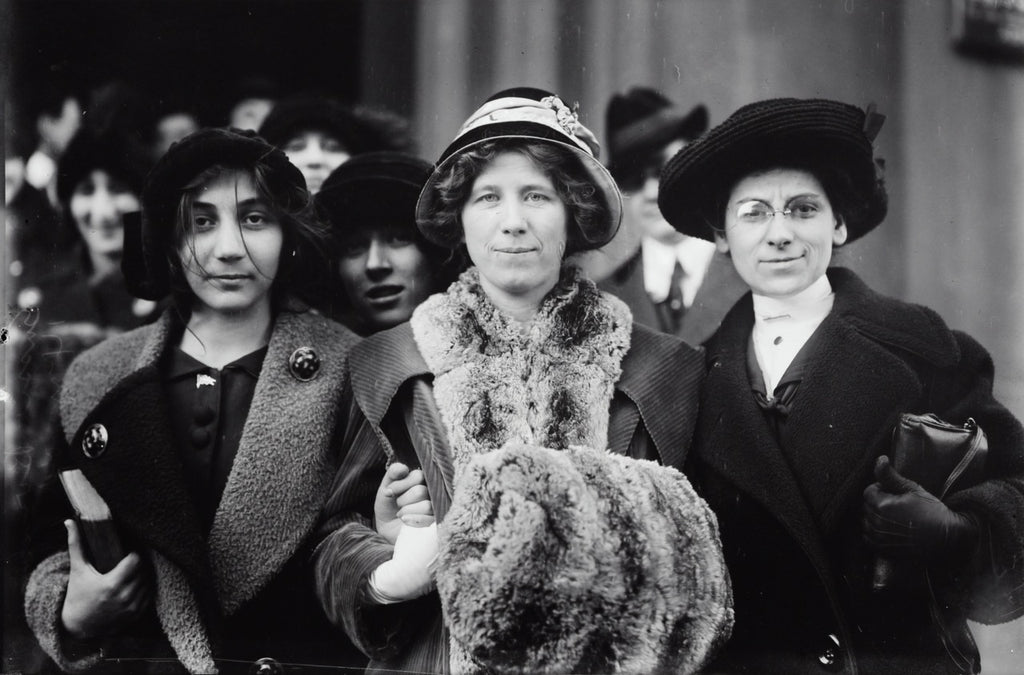5 Women Environmentalists to Honor this Women's History Month

Women's History Month is celebrated every March to commemorate the vast achievements of women from all over the world. Its origins can be traced back to an International Women's Conference that was held in Copenhagen, Denmark in 1910, which included 100 delegates from 17 countries. German delegate, Clara Zetkin, proposed the establishment of an annual "Women's Day" as a strategy to demand equal rights for all women.
March 19th, 1911 marked the very first International Women's Day with over a million participants in Austria, Denmark, Germany, and Switzerland. Years later, in 1980, President Jimmy Carter issued the first Presidential Proclamation declaring the Week of March 8th as National Women's History Week, which was later expanded to the whole month of March by the US Congress in 1987.
In honor of Women’s History Month, we want to recognize these inspiring female environmentalists who have helped pave the way for a more sustainable future.

Rachel Carson (1907-1964)
"Can anyone believe it is possible to lay down such a barrage of poisons on the surface of the earth without making it unfit for all life?"
Rachel Carson was an author, marine biologist, and an inspiring environmentalist. Her most influential work, Silent Spring, was published in 1962 and exposed the harm being done to the environment by the indiscriminate use of pesticides. It sparked a nationwide debate that led to the banning of DDT and other pesticides in 1972. It also inspired a grassroots movement that led to the creation of the U.S. Environmental Protection Agency.

Marjory Stoneman Douglas (1890- 1998)
“There are no other Everglades in the world. They are, they have always been, one of the unique regions of the earth.”
Marjory Stoneman Douglas was a journalist, author, women's suffrage advocate, and conservationist known for her vast efforts to protect the Florida Everglades. There is no place in the world quite like these subtropical wetlands, which provides drinking water to more than 8 million Floridians and also protects many communities from hurricanes and flooding. She was dubbed as the “Grandmother of the Glades” for her most influential work, The Everglades: River of Grass, which was published in 1947, the same year as the formal opening of Everglades National Park.

Maya Lin
“I try to give people a different way of looking at their surroundings. That's art to me.”
Maya Lin is an American designer that is best known for her environmental artworks, architectural works, and her memorial designs. In 2009 she began her memorial What is Missing?, an advocacy-driven project to raise awareness about what we are losing from the natural world, yet also emphasizes what can be done to help protect and restore species and habitats. In connection to her memorial, What Is Missing, she has recently created Ghost Forest, an environmental sculptural artwork that was on public display in 2021 in Madison Square Park. This haunting landscape brings awareness to the horrible effects of climate change, leaving only dead and dying trees in a once thriving and green woodland.

Wangari Maathai (1940 – 2011)
“You cannot protect the environment unless you empower people, you inform them, and you help them understand that these resources are their own, that they must protect them.”
In 1977, Wangari Maathai founded the “Green Belt Movement” (GBM), which works toward creating better environmental management practices, community empowerment, and reforestation efforts. Since its founding, GBM has planted over 51 million trees. Then in 2004, she became the first African woman to win the Nobel Peace Prize for her contribution to sustainable development, democracy and peace.

Winona LaDuke
“Power is not brute force and money; power is in your spirit. Power is in your soul. Power is in the earth; it is in your relationship to the earth.”
Winona LaDuke is an American economist, environmentalist, writer and industrial hemp grower, known for her work on tribal land claims and preservation. She is the executive director and co-founder of Honor the Earth, a non-profit organization created to raise awareness and financial support for Indigenous environmental justice. In 2016, LaDuke was also involved in the Dakota Access Pipeline protests, where construction directly threatened ancient burial grounds, cultural sites of historic importance, and the region's water supply.
